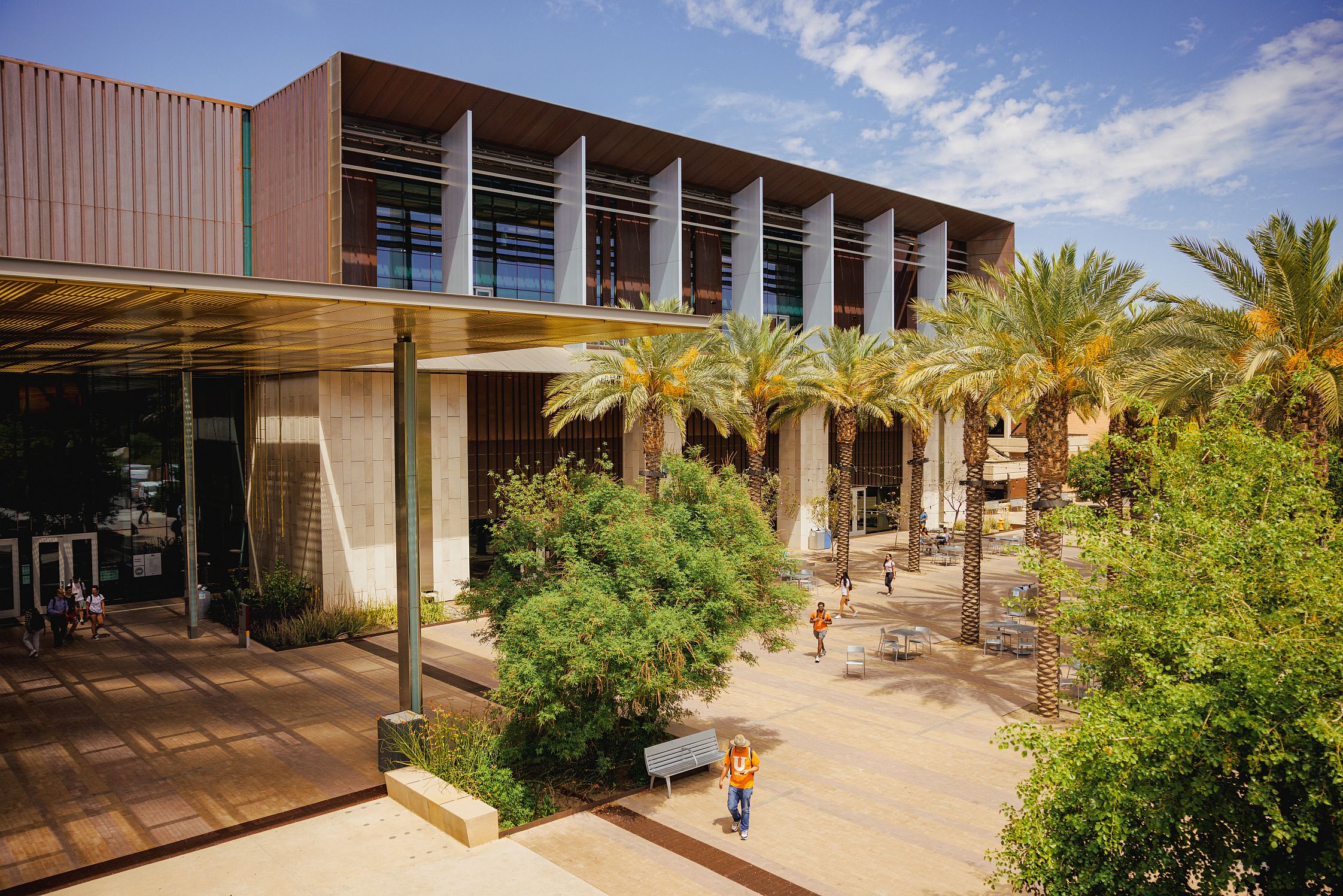| Click the banner below to access the symposium website. |
| Second Announcement, January 2025 |
Alexandra, Chris, and Mark are excited to let you know that the planning for the 41st International Symposium on Microscale Separations and Bioanalysis, Tempe AZ from May 18-21th 2025, is well underway. The various venues for the meeting are being finalized, food and refreshment contracts are being sought, and most importantly we are beginning to build the scientific program for the meeting, and we are ready for you to submit your abstracts!
|
Submit your Abstracts Today!
In keeping with the SMSB goals, three quarters of our session talks will be chosen from the contributed abstracts that we receive. We specifically employ a double-blind review process to ensure that we are selecting the best scientific advances in the field, regardless of the status of the author. As such you can be guaranteed to hear from speakers you might not see present at other conferences, and you can also be assured that the work they present will be riveting!
We are very pleased to announce that our abstract submission process is now open, and we encourage everyone with exciting research results, particularly early-stage results, to submit an abstract.
Abstract submission deadline: Orals (Feb. 7)
Because of the double-blind nature of the abstracts, we do request that those submitting abstracts adhere to some guidelines. Should you have any questions about the abstract submission process, please reach out to Chris Harrison for assistance. |
 |
MSB 2025 Plenary Speakers
Each day of the meeting will begin with a plenary session from a luminary scientist making exciting advances in our field, setting the tone for what is sure to be engaging days filled with high quality scientific presentations.
We are pleased to present here the two of the four plenary speakers – the other two will be announced in the next newsletter, or you could just go to our webpage and see who they are now. |
| | The research of Prof. Federica Caselli, from University of Rome Tor Vergata, focuses on developing innovative lab-on-a-chip devices for diagnostics and life sciences, with a particular emphasis on microfluidic impedance cytometry. She leads the Laboratory of Biomedical Microdevices and is the author of over 60 peer-reviewed publications and has been invited as a speaker at several international conferences and workshops. She explores advanced approaches for single-cell biophysical phenotyping and manipulation, leveraging model-based device design and cutting-edge signal processing techniques. Her recent work emphasizes all-electrical platforms and the integration of neural-network-based data analytics. |
|
| | The research of Prof. David Weitz, from Harvard University, span a wide breadth of fields including soft mater science, biophysics and microfluidics. With hundreds of publications, several patents, and startup companies coming from his lab, Dr. Weitz has had a significant impact on multiple fields after moving to academia after 18 years at Exxon Research and Engineering Company. Of late his work in microfluidics has focused on developing methods to make ‘designer’ emulsions and foams on a drop-by-drop basis using a class of microfluidic devices that they have developed. They fabricate multiple emulsions with exquisite precision, and they explore both the basic physics of these structures, as well as their potential uses for encapsulation of active materials. The Weitz lab is applying these approaches to investigate issues in biology and for biotechnology application, enabling the collection of biological data in droplets at very high rates for precise analyses. |
|
Session Topics
The opportunities to present and learn at MSB 2025 will be plentiful. The meeting format will offer two simultaneous session tracks, with talks across a range of separation and bioanalysis topics over the three days. A full list of sessions can be found on the MSB website, but notable sessions will include:
- Digital microfluidics, droplet microfluidics, centrifugal microfluidics
- Omics
- Environmental/forever chemicals (PFASs/microplastics)
- Pharma and biopharma applications
|
Key Dates
Keep an eye on the MSB 2025 webpage for the opening (coming soon) of the abstract submission and registration processes.
- Abstract submission deadline: Orals (Feb. 7);
- Abstract submission deadline: Posters (Apr. 11);
- Early bird registration ends March 31
|
Sponsorship Opportunity
With attendees from both academia and industry MSB 2025 provides groups with an unparalleled opportunity to showcase your products and/or services to both leaders in the fields of microseparations and bioanalyses and the next generation of influential scientists. We have a range of opportunities for a limited number of sponsors to support this unique meeting. To learn more about sponsorship opportunities visit here or contact Mark A. Hayes |
Legal Notice: 41st International Symposium on Microscale Separations and Bioanalysis (MSB 2025) is organized by Professors Alexandra Ros, Christopher Harisson and Mark Hayes under responsibility of Arizona State University. The organizers can be contacted at msb2025@asu.edu.
Protection and Disclaimer: This mail is sent on behalf of the organizers of MSB 2025 from a private distribution list owned by Dr. Gerard Rozing. The organizers of MSB 2025 and Dr. Rozing will take great care that this mailing list and therefore your credentials will not be used for other purposes than information about this symposium series and other symposia in the field of liquid phase separation science. We are committed to never sending unwelcomed or unsolicited e-mails. Personal data collected through this website, or this newsletter are handled in compliance with the EU Data Protection Directive (official Directive 95/46/EC on the protection of individuals).
In case you do not want to receive information on the MSB Symposium Series and/or want to be removed from the mailing list, click below the unsubscribe button. In case you receive duplicate copies or use multiple e-mail-addresses, reply to this message and let Dr. Rozing know your preferred e-mail-address. |
|
|
|